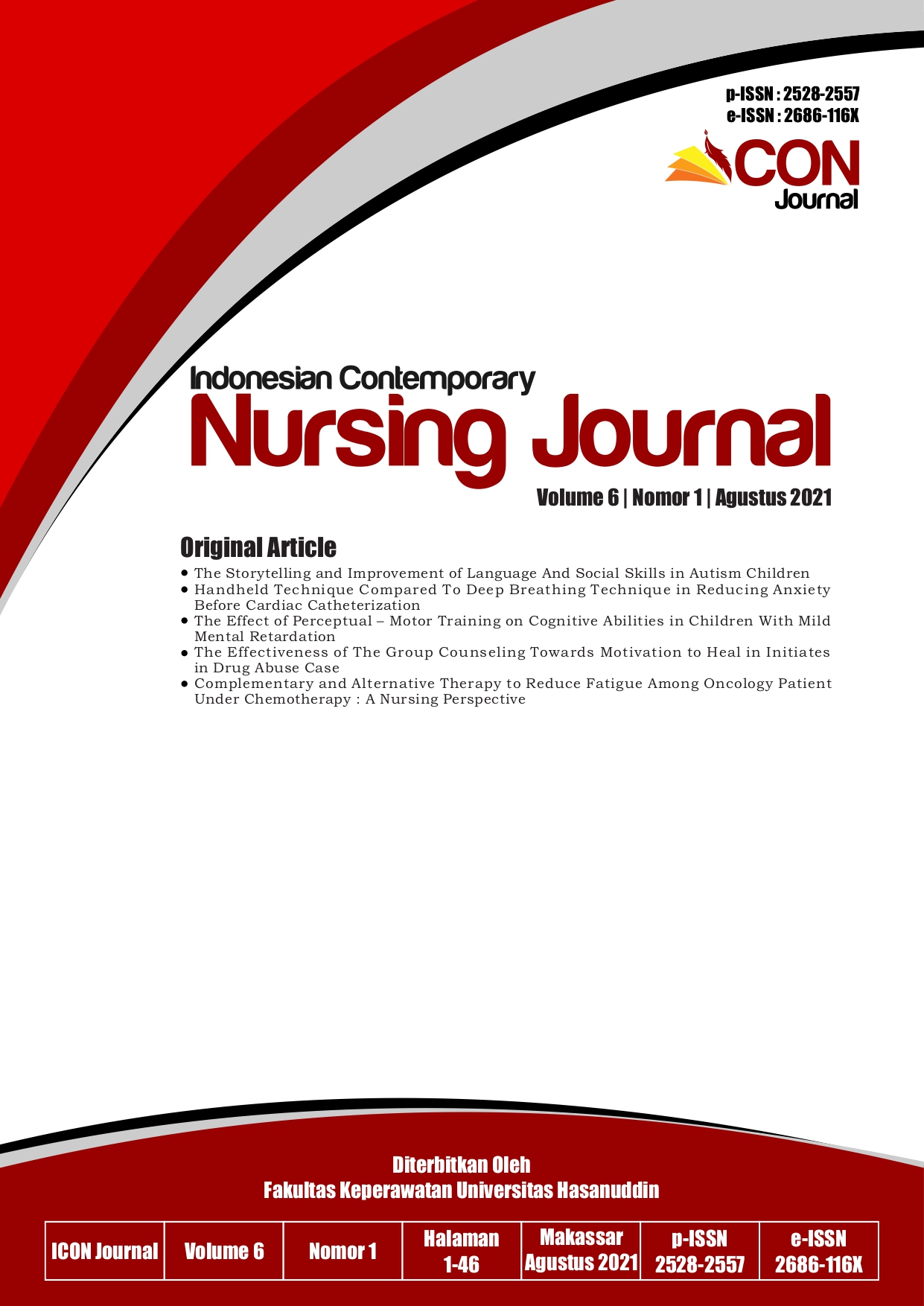Complementary and Alternative Therapy to Reduce Fatigue Among Oncology Patient under Chemotherapy : A Nursing Perspective
Keywords:
cancer, complementary, alternative therapy, nursing intervention, fatigueAbstract
The incidence of cancer is rapidly increasing among the world. Cancer mostly demand cytotoxic regiment that caused adverse events. Fatigue is the most symptom that complained by oncology patients. Nurse has obligation to relieve patient’s simptom and promote well being during the therapeutic procedure. The aim of this study was to analyse the effect of complementary and alternative therapy to reduce fatigue based on nursing perspective. Design of the study was literature review. Online searching method involved four databases including Pubmed, Sciendirect, SAGE, and Pubmed. The inclusion criteria of studies were published in free fulltext between 2012 and 2018, clinical experimental studies at least quasi experiment or RCT. The exclusion criteriawere not in adult population who received chemotherapy. The results found eight studies matched the criteria. There were two studies applied massage as body manipulation and exercise-energy based intervention such as acupressure, yoga, qigong, and taichi. Those intervention were relevant with nursing body of knowledge, well explained in the North American Nursing Diagnosis Association, Nursing Outcomes Classification, Nursing Interventions Classification (NANDA, NOC, and NIC) as standardized nursing language.Downloads
Download data is not yet available.
Dimensions
Published
2021-08-31
How to Cite
Purnamayanti, N. K. D., Putra, M. G. A. ., & Haryani, H. (2021). Complementary and Alternative Therapy to Reduce Fatigue Among Oncology Patient under Chemotherapy : A Nursing Perspective. Indonesian Contemporary Nursing Journal (ICON Journal), 6(1), 38-46. https://doi.org/10.20956/icon.v6i1.11419
Issue
Section
ARTICLES
Copyright & Licensing
Authors who publish with this journal agree to the following terms:
Authors retain copyright and grant the journal right of first publication with the work simultaneously licensed under a Creative Commons Attribution License that allows others to share the work with an acknowledgement of the work's authorship and initial publication in this journal.
Authors are able to enter into separate, additional contractual arrangements for the non-exclusive distribution of the journal's published version of the work (e.g., post it to an institutional repository or publish it in a book), with an acknowledgement of its initial publication in this journal.
Authors are permitted and encouraged to post their work online (e.g., in institutional repositories or on their website) prior to and during the submission process, as it can lead to productive exchanges, as well as earlier and greater citation of published work (See The Effect of Open Access).
Authors retain copyright and grant the journal right of first publication with the work simultaneously licensed under a Creative Commons Attribution License that allows others to share the work with an acknowledgement of the work's authorship and initial publication in this journal.
Authors are able to enter into separate, additional contractual arrangements for the non-exclusive distribution of the journal's published version of the work (e.g., post it to an institutional repository or publish it in a book), with an acknowledgement of its initial publication in this journal.
Authors are permitted and encouraged to post their work online (e.g., in institutional repositories or on their website) prior to and during the submission process, as it can lead to productive exchanges, as well as earlier and greater citation of published work (See The Effect of Open Access).
Most read articles by the same author(s)
- ni kadek diah purnamayanti, Alfonsius Ade Wirawan, Yoga for Myocardial Infarction Care, What’s the Recommendation? , Indonesian Contemporary Nursing Journal (ICON Journal): Vol. 8 No. 2 (2024): Volume 8 No. 2 Februari 2024

